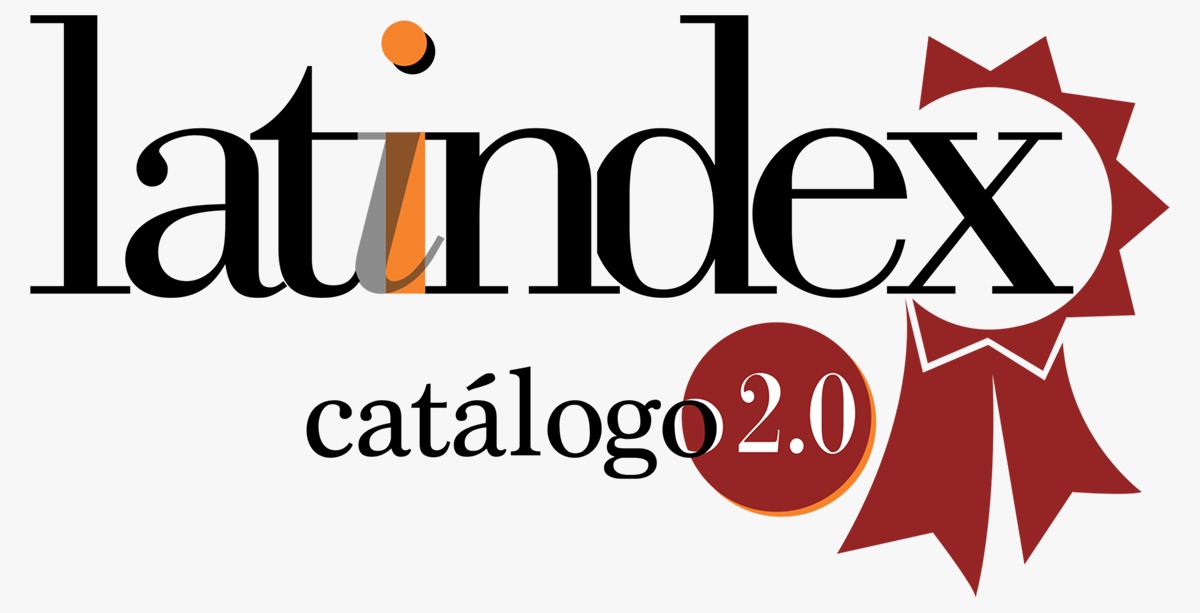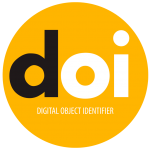Design and validation of formative research skill scale
DOI:
https://doi.org/10.47865/igob.vol7.n25.2024.328Keywords:
Psychometric properties, Confirmatory factor analysis, Validity and reliability, Omega coefficient, PostgraduateAbstract
The development of formative research skills involves the implementation of activities aimed at scientific research, which is considered fundamental for the development of countries in the 21st century. Despite this importance, there is no instrument with sufficient psychometric evidence. Within this framework, the present study aimed to design and validate a scale to measure formative research skills in the context of graduate students. An instrumental study was carried out on 187 master's students, aged between 24 to 68 years (M = 36.21; SD = 9.13), belonging to the majors of University Teaching (43.8%), Educational Management (38%). ) and Evaluation and Accreditation of the Quality of Education (18.2%) of a Peruvian public university, to whom a 35-item scale was administered. The content validation carried out with Aiken's V included relevance and clarity of wording of the items, and showed a value of .991 for the entire instrument. On the other hand, the confirmatory factor analysis reported adequate goodness-of-fit indices (x2/df = 1.264, RMSEA = .038, SRMR = .079, GFI = .954, CFI = .985, TLI = .983). Finally, an excellent level of reliability was obtained (w = .93). The EDHIF showed validity and reliability to measure the level of development of formative research skills in graduate students. In this way, a useful instrument is presented to determine the progress of investigative skills and make improvements in training areas.
Downloads
References
Abbott, D. (2019). Game-based learning for postgraduates: An empirical study of an educational game to teach research skills. Higher Education Pedagogies, 4(1), 80–104. https://doi.org/10.1080/23752696.2019.1629825
Aliaga-Pacora, A. A., Juárez-Hernández, L. G., & Herrera-Meza, R. (2021). Diseño y validez de contenido de una rúbrica analítica socioformativa para evaluar competencias investigativas en posgrado. Apuntes Universitarios, 11(2), 62–82. https://doi.org/https://doi.org/10.17162/au.v11i2.632
Alsaleh, N. J. (2019). Flipped classrooms to enhance postgraduate students’ research skills in preparing a research proposal. Innovations in Education and Teaching International, 57(4), 392–402. https://doi.org/10.1080/14703297.2019.1647269
American Educational Research, American Psychological Association, & National Council on Measurement in Education. (2014). Standards for educational and psychological testing. American Educational Research Association.
Ato, M., López, J. J., & Benavente, A. (2013). Un sistema de clasificación de los diseños de investigación en psicología. Anales de Psicología, 29(3), 1038–1059. https://doi.org/http://dx.doi.org/10.6018/analesps.29.3.178511
Bapte, V. D., & Bejalwar, S. A. (2022). Promoting the use of reference management tools: An opportunity for librarians to promote scientific tradition. DESIDOC Journal of Library and Information Technology, 42(1), 64–70. https://doi.org/10.14429/DJLIT.42.1.17251
Batista-Foguet, J. M., Coenders, G., & Alonso, J. (2004). Análisis factorial confirmatorio. Su utilidad en la validación de cuestionarios relacionados con la salud. Medicina Clínica, 122(1), 21–27. https://doi.org/10.1157/13057542
Bendezú Guevara, J. A. (2020). La motivación y el desarrollo de habilidades de investigación formativa en estudiantes de la ciudad de Pucallpa [Tesis de maestría, Universidad Católica Los Ángeles de Chimbote]. http://repositorio.uladech.edu.pe/handle/20.500.13032/20445
Brown, T. A. (2015). Confirmatory factor analysis for applied research. The Guilford Press. https://doi.org/10.1198/tas.2008.s98
Caron Estrada, R., Mattos Navarro, P., & Barboza Meca, J. J. (2020). Difficulties for the elaboration of scientific research articles by postgraduates students in health sciences. Revista Cubana de Educacion Medica Superior, 34(3), 1–9.
Charter, R. A. (2003). A breakdown of reliability coefficients by test type and reliability method, and the clinical implications of low reliability. Journal of General Psychology, 130(3), 290–304. https://doi.org/10.1080/00221300309601160
Chirino-Ramos, M. V. (2012). Didáctica de la formación inicial investigativa en las universidades de ciencias pedagógicas. Varona. Revista Científico-Metodológica, 55, 18–24. https://www.redalyc.org/pdf/3606/360633907004.pdf
Cobos Alvarado, F. (2016). DISEÑO Y VALIDACIÓN DE UN CUESTIONARIO PARA MEDIR HABILIDADES DE INVESTIGACIÓN: EXPERIENCIA CON ESTUDIANTES DE INGENIERÍA. 6(3), 219–233.
Cobos Alvarado, F., Peñaherrera León, M., & Ortiz Colon, A. M. (2016). Design and validation of a questionnaire to measure research skills: Experience with engineering students. Journal of Technology and Science Education, 6(3), 219–233. https://doi.org/10.3926/jotse.227
Cortada de Kohan, N. (2002). Importancia de la investigación psicométrica. Revista Latinoamericana de Psicologia, 34(3), 229–240. https://www.redalyc.org/pdf/805/80534303.pdf
Costello, A. B., & Osborne, J. W. (2005). Best practices in exploratory factor analysis: Four recommendations for getting the most from your analysis. Practical Assessment, Research and Evaluation, 10(7), 1–10. https://doi.org/https://doi.org/10.7275/jyj1-4868
Cruz Ardila, J. C., Olarte Cabana, J. A., Hernández Vásquez, S., & Hernández García, E. A. (2021). La investigación formativa en Colombia: Una mirada desde su implementación. Revista Boletín Redipe, 11(2), 177–187. https://revista.redipe.org/index.php/1/article/view/1676
Dominguez-Lara, S. A. (2016). Validez de contenido usando la V de Aiken con intervalos de confianza: Aportes a Rodríguez et al. Archivos Argentinos de Pediatria, 114(3), e221–e222. http://www.scielo.org.ar/scielo.php?script=sci_arttext&pid=S0325-00752016000300035
Ecarnot, F., Seronde, M. F., Chopard, R., Schiele, F., & Meneveau, N. (2015). Writing a scientific article: A step-by-step guide for beginners. European Geriatric Medicine, 6, 573–579. https://doi.org/10.1016/j.eurger.2015.08.005
Escurra, L. M. (1988). Cuantificación de la validez de contenido por criterio de jueces. Revista de Psicología, 6(1–2), 103–111.
Fernández-Monge, L., Carcausto, W., & Quintana-Tenorio, B. de J. (2022). Habilidades investigativas en la educación superior universitaria de América Latina: Una revisión de la literatura. Polo Del Conocimiento, 7(1), 02–23. https://doi.org/10.23857/pc.v7i1.3464
Garay-Argandona, R., Rodriguez-Vargas, M. C., Hernandez, R. M., Carranza-Esteban, R., & Turpo, J. E. (2011). Research competences in university students in virtual learning environments. Cypriot Journal of Educational Sciences, 16(4), 1721–1736. https://doi.org/https://doi.org/10.18844/cjes.v16i4.6031
Gerbing, D. W., & Anderson, J. C. (1988). An updated paradigm for scale development incorporating unidimensionality and its assessment. Journal of Marketing Research, 25(2), 186–192. https://doi.org/10.2307/3172650
Guillén-Gámez, F. D., & Mayorga-Fernández, M. J. (2020). Design and validation of an instrument of self-perception regarding the lecturers’ use of ICT resources: To teach, evaluate and research. Education and Information Technologies, 26(2), 1627–1646. https://doi.org/10.1007/s10639-020-10321-1
Gyuris, E. (2018). Evaluating the effectiveness of postgraduate research skills training and its alignment with the research skill development framework. Journal of University Teaching and Learning Practice, 15(4). https://doi.org/10.53761/1.15.4.5
Hair, J., Black, W. C., Babin, B. J., & Anderson, R. E. (2019). Multivariate data analysis. Cengage Learning EMEA.
Healey, M. (2005). Linking research and teaching to benefit student learning. Journal of Geography in Higher Education, 29(2), 183–201. https://doi.org/10.1080/03098260500130387
Kalpokas, N., & Radivojevic, I. (2022). Bridging the gap between methodology and qualitative data analysis software: A practical guide for educators and qualitative researchers. Sociological Research Online, 27(2), 313–341. https://doi.org/10.1177/13607804211003579
Kline, P. (2014). An easy guide to factor analysis. Routledge. https://doi.org/10.4324/9781315788135
Kline, R. B. (2016). Principles and practices of structural equation modeling. The Guilford Press.
Lloret-Segura, S., Ferreres-Traver, A., Hernández-Baeza, A., & Tomás-Marco, I. (2014). El análisis factorial exploratorio de los ítems: Una guía práctica, revisada y actualizada. Anales de Psicología, 30(3), 1151–1169. https://doi.org/10.6018/analesps.30.3.199361
López Balboa, L. (2001). El desarrollo de las habilidades de investigación en la formación inicial del profesorado de química [Tesis doctoral, Universidad de Cienfuegos Carlos Rafael Rodríguez]. https://www.eumed.net/tesis-doctorales/2010/llb/HABILIDADES DE INVESTIGACION EN LA FORMACION INICIAL DEL PROFESORADO DE QUIMICA INTRODUCCION.htm
Maddens, L., Depaepe, F., Janssen, R., Raes, A., & Elen, J. (2020). Evaluating the Leuven Research Skills Test for 11th and 12th Grade. Journal of Psychoeducational Assessment, 38(4), 445–459. https://doi.org/10.1177/0734282918825040
Martínez Rodríguez, D., & Marquéz Delgado, D. L. (2014). Las habilidades investigativas como eje transversal de la formación para la investigación. Tendencias Pedagógicas, 24, 347–360. https://revistas.uam.es/tendenciaspedagogicas/article/view/2110
McBride, M. F., & Burgman, M. A. (2012). What is expert knowledge, how is such knowledge gathered, and how do we use it to address questions in landscape ecology? In A. H. Perera, A. Drew, & C. J. Johnson (Eds.), Expert Knowledge and its Application in Landscape Ecology (pp. 11–38). Springer. https://doi.org/10.1007/978-1-4614-1034-8
McDonald, R. P. (1999). Test theory: A unified treatment. Lawrence Erlbaum Associates, Publishers.
McNeish, D. (2018). Thanks coefficient alpha, we’ll take it from here. Psychological Methods, 23(3), 412–433. https://doi.org/10.1037/met0000144
Meerah, T. S. M., Osman, K., Zakaria, E., Ikhsan, Z. H., Krish, P., Lian, D. K. C., & Mahmod, D. (2012). Measuring Graduate Students Research Skills. Procedia - Social and Behavioral Sciences, 60, 626–629. https://doi.org/10.1016/j.sbspro.2012.09.433
Meneses, J., Barrios, M., Bonillo, A., Cosculluela, A., Lozano, L. M., Turbany, J., & Valero, S. (2013). Psicometría. Editorial UOC.
Moreno Bayardo, M. G. (2005). Potenciar la educación. Un currículum transversal de formación para la investigación. Revista Electrónica Iberoamericana Sobre Calidad, Eficacia y Cambio En Educación, 3(1), 520–540. https://www.redalyc.org/pdf/551/55130152.pdf
Orellana-Fonseca, C., Salazar-Jiménez, R., Martínez-Labrin, S., Pérez-Díaz, G., & Farías-Olavarría, F. (2019). Valoraciones que estudiantes de un posgrado de profesión docente tienen sobre la formación en metodología de la investigación recibida en el pregrado y su uso en la práctica docente. Revista Electronica Educare, 23(1), 1–25. https://doi.org/10.15359/ree.23-1.17
Parra Moreno, C. (2004). Apuntes sobre la investigación formativa. Educación y Educadores, 7, 57–77. https://www.redalyc.org/pdf/834/83400707.pdf
Penfield, R., & Giacobbi, P. (2004). Applying a score confidence interval to Aiken’s item content-relevance index. Measurement in Physical Education and Exercise Science, 8(4), 213–225. https://doi.org/10.1207/s15327841mpee0804
Perines, H., & Ion, G. (2020). How do prospective teachers understand educational research? Teacher Educator, 56(1), 101–116. https://doi.org/10.1080/08878730.2020.1846831
Piña-Osorio, J. M., & Aguayo-Rousell, H. B. (2017). La ética en la investigación de posgrado. Revista Electronica Educare, 21(2), 1–25. https://doi.org/10.15359/ree.21-2.12
Pirela Morillo, J., Pulido Daza, N. J., & Mancipe Flechas, E. (2015). Componentes y dimensiones de la investigación formativa en ciencias de la información. Enl@ce: Revista Venezolana de Información, Tecnología y Conocimiento, 12(3), 48–70. https://produccioncientificaluz.org/index.php/enlace/article/view/20627
Portillo-Torres, M. C. (2017). Educación por habilidades: Perspectivas y retos para el sistema educativo. Revista Educación, 41(2), 1. https://doi.org/10.15517/revedu.v41i2.21719
Rafi, M., JianMing, Z., & Ahmad, K. (2019). Evaluating the impact of digital library database resources on the productivity of academic research. Information Discovery and Delivery, 47(1), 42–52. https://doi.org/10.1108/IDD-07-2018-0025
Rangaswamy, & Rajendra, B. H. (2021). Researcher’s Perception on Zotero and Mendeley Reference Management Tools: A Study. Library Philosophy and Practice, 2021(August), 1–12. https://digitalcommons.unl.edu/cgi/viewcontent.cgi?article=10995&context=libphilprac
Rojas Zúñiga, S. A., Barrientos López, P. E., Valle Castillo, S. M., & Chanamé Chira, R. (2021). Desarrollo de habilidades investigativas en el contexto educativo. Paian, 12(1), 32–42. https://doi.org/10.26495/rcp.v12i1.1658
Ruiz, M. A., Pardo, A., & Martín, R. S. (2010). Modelos de ecuaciones estructurales. Papeles Del Psicólogo, 31(1), 34–45. https://www.redalyc.org/articulo.oa?id=77812441004
Tabachnick, B. G., & Fidell, L. S. (2019). Using multivariate statistics. Pearson.
Turpo-Gebera, O., Diaz-Zavala, R., Gutiérrez-Aguilar, O., Mango-Quispe, P., & Gutiérrez-Salcedo, E. (2023). Conceptual Mapping of Formative Research in the Peruvian University. Human Review. International Humanities Review / Revista Internacional de Humanidades, 21(2), 437–450. https://doi.org/10.37467/revhuman.v21.5080
Velandia-Mesa, C. (2021). La investigación formativa a través de la sistematización de experiencias en ambientes Ulearning [Tesis doctoral, Universidad de Murcia]. http://nadir.uc3m.es/alejandro/phd/thesisFinal.pdf%5Cnhttp://scholar.google.com/scholar?hl=en&btnG=Search&q=intitle:Universidad+de+murcia#0
Vieno, K., Rogers, K. A., & Campbell, N. (2022). Broadening the definition of ‘Research Skills’ to enhance students’ competence across undergraduate and master’s programs. Education Sciences, 12(10), 1–14. https://doi.org/10.3390/educsci12100642
Weston, T. J., & Laursen, S. L. (2015). The undergraduate research student self-assessment (URSSA): Validation for use in program evaluation. CBE Life Sciences Education, 14(3), 1–10. https://doi.org/10.1187/cbe.14-11-0206
Willison, J. W. (2018). Research skill development spanning higher education: Critiques, curricula and connections. Journal of University Teaching and Learning Practice, 15(4), 2–16. https://doi.org/10.53761/1.15.4.1
Zafonte, M., & Parks-Stamm, E. J. (2016). Effective instruction in APA style in blended and face-to-face classrooms. Scholarship of Teaching and Learning in Psychology, 2(3), 208–218. https://doi.org/10.1037/stl0000064
Zambrano-Sandoval, H., & Chacón, C. T. (2021). Competencias investigativas en la formación de posgrado. Análisis cualitativo. Revista Educación, 45(2), 1–17. https://doi.org/10.15517/revedu.v45i1.43646
Downloads
Published
How to Cite
Issue
Section
License

This work is licensed under a Creative Commons Attribution-NonCommercial-ShareAlike 4.0 International License.
Esta obra está bajo una licencia internacional Creative Commons Atribución-NoComercial-CompartirIgual 4.0.
















